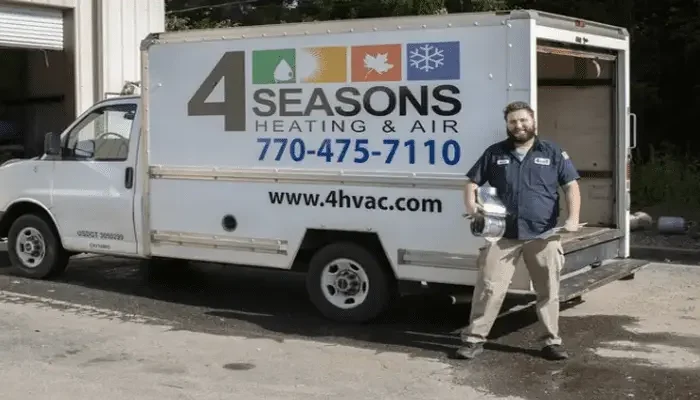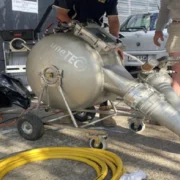Importance of Right-Sizing Your HVAC System
Selecting the right size HVAC system for your space is crucial for maintaining comfort, energy efficiency, and system durability. Installing a too-large or too-small unit can lead to various problems, including increased energy bills and reduced comfort levels. It will waste energy and cause temperature changes if the unit is too big. Conversely, an undersized unit will need help maintaining the desired temperature, leading to constant operation and higher energy consumption. This highlights the importance of accurate sizing when considering an HVAC Alpharetta solution.
Factors to Consider
Several factors influence the appropriate size of an HVAC system for your home. These include:
- Square Footage: One major consideration is the overall size of your house. Greater volume is needed for larger areas.
- Ceiling Height: Higher ceilings mean more air volume to condition.
- Insulation Levels: Well-insulated homes retain temperature better, reducing the load on the HVAC system.
- Climate Zone: Your geographical location affects the heating and cooling requirements.
- Number of Occupants: More people produce more heat, which changes the requirement for cooling.
- Windows and Doors: The number, size, and type of windows and doors impact heat gain and loss.
Manual J Calculations
Manual J load calculation is the industry-standard method for determining the right size of HVAC system. This comprehensive calculation considers all the above factors and more, providing a precise measurement of your heating and cooling requirements. Using software tools or consulting professional guidelines, this calculation assesses your home’s specific thermal characteristics to recommend the optimal system size.
Using the Right Size Equipment
A properly sized HVAC system offers several benefits, including improved energy efficiency, enhanced comfort levels, and a longer lifespan. Ensuring the unit cycles appropriately allows you to maintain a consistent indoor temperature without overworking the system. This not only improves comfort but also helps in reducing energy bills and maintenance costs.
Using the right size equipment also reduces wear and tear on the system, minimizing the frequency of repairs and extending the unit’s lifespan. It ensures the system operates within its optimal performance range, providing reliable and efficient heating and cooling throughout its years of operation.
Common Mistakes to Avoid
Avoiding common mistakes is essential when sizing your HVAC system:
- Ignoring Insulation: Please consider insulation to avoid inaccurate load calculations and improper system sizing.
- Not Accounting for Climate Zone: Regional climate variations significantly impact heating and cooling needs.
- Overestimating or Underestimating Square Footage: Accurate measurements are vital for sizing calculations.
- Overlooking Professional Advice: DIY calculations without professional guidance can result in errors. Always consider professional input for precise results.
Professional Assistance
Despite the availability of calculators and software tools, consulting with a professional HVAC contractor is highly recommended. Professionals have the experience and knowledge to perform accurate load calculations, ensuring your system is perfectly sized for your space. They can also provide valuable advice on system selection, installation, and maintenance, optimizing performance and efficiency.
Conclusion
Accurately sizing your HVAC system is essential for comfort, efficiency, and longevity. By considering various factors, performing Manual J calculations, and consulting professionals, you can ensure your system meets your heating and cooling needs without unnecessary energy consumption or wear. Proper sizing enhances comfort, reduces energy costs, and extends the lifespan of your HVAC system, making it a worthy investment for any homeowner.
What is Gramho? Overview, Features, Access, Alternatives, Pros & Cons









Comments